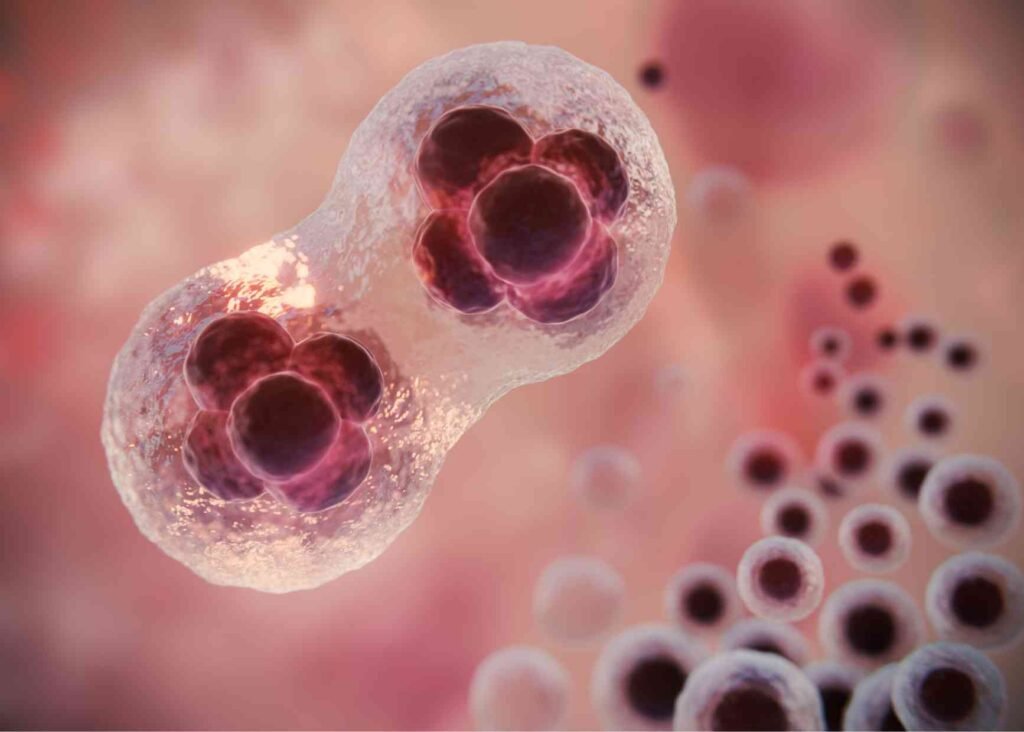Egg Quality vs. Quantity: AMH Isn’t Everything
Let’s be real for a second: if you’ve ever Googled anything about fertility, you’ve probably come across terms like “AMH,” “egg reserve,” or “egg quality.” And if you’re on a journey to conceive—whether naturally or through IVF—it’s easy to get caught up in a whirlwind of hormone levels, scan results, and lab reports.
But one thing that often gets misunderstood in all of this? The difference between egg quantity and egg quality. And more importantly, the fact that AMH (Anti-Müllerian Hormone), while helpful, doesn’t tell the whole story.
So let’s break it down. No medical jargon overload. Just a heart-to-heart about what really matters when it comes to your eggs—and why egg quality vs. quantity is a conversation we all need to be having.
What Does AMH Really Tell You?
AMH is a hormone produced by tiny follicles in your ovaries. The more follicles you have, the higher your AMH level. So, in essence, it gives doctors an idea of your ovarian reserve, aka how many eggs you might have left.
AMH is a quantity measure, not a quality one. You could have an AMH level through the roof but still face difficulties conceiving if those eggs aren’t viable. On the flip side, someone with a low AMH might conceive naturally with no problem at all, because their eggs are solid gold.
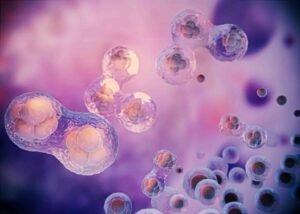
Egg Quality vs. Quantity:
Why Both Matter, But One Reigns Supreme?
Let’s put it this way: Quantity gives you more chances, but quality gives you better chances.
Think of your eggs like lottery tickets. Having more (quantity) increases your odds of winning. But if your tickets are damaged, smudged, or misprinted (quality), your chances of hitting the jackpot are still slim, even with a handful.
In fertility, egg quality refers to the likelihood that an egg can be fertilized and develop into a healthy embryo. That, in turn, depends largely on its genetic integrity—something we can’t measure as easily as hormone levels.
Most fertility testing doesn’t directly assess egg quality. You only get a real glimpse once you start trying to conceive or go through IVF, and even then, it’s an indirect assessment based on how your eggs respond.
Why Is Egg Quality So Elusive?
Unlike AMH or FSH (Follicle-Stimulating Hormone), which can be checked via a simple blood test, there’s no easy biomarker for egg quality. That’s because quality is about chromosomal health, something we can’t see unless we retrieve and test the egg—and even then, the testing isn’t perfect.
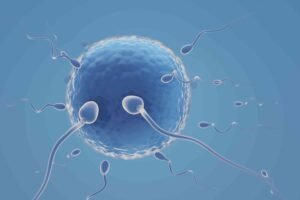
Here’s what we do know: egg quality declines with age. Especially after 35, there’s a sharper drop in chromosomally normal eggs. But again, age is a general guideline—not a fertility death sentence. Some 40-year-olds have better eggs than someone ten years younger.
It’s all incredibly individual, which is why focusing solely on AMH or egg count can be misleading. It’s not just about how many eggs you have—it’s about how well those eggs can do the job.
Busting the Myth: Low AMH Means No Hope
One of the biggest fears women face is seeing a low AMH result and thinking it means the end of the road. Let’s stop that narrative right here.
Low AMH does not mean infertility. It means fewer eggs, not bad eggs.
Plenty of women with low AMH conceive naturally or respond well to IVF because their egg quality is still strong. The problem is, our medical system (and often the internet) tends to lump low AMH in with “poor prognosis,” when the full picture is far more nuanced.
If you’re navigating fertility with low AMH, it’s worth remembering:
- Your AMH doesn’t change your body’s ability to ovulate monthly.
- You only need one good egg to get pregnant.
- Quality trumps quantity every time.
It’s not a numbers game—it’s a viability game. And that’s where the real story of egg quality vs. quantity begins.
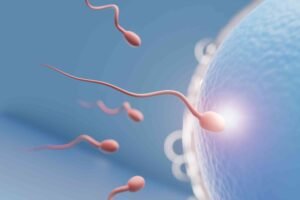
The Age Factor: How It Impacts Both Sides
We can’t talk about eggs without talking about age. Yes, age affects both quantity and quality—but not always at the same rate.
Around your mid-30s, you start to see a sharper drop in quality. By 40, the decline is more dramatic. The rate at which chromosomal abnormalities increase makes it harder to conceive and maintain a pregnancy.
But here’s what’s wild: your body is still ovulating. In fact, you can have perfectly regular cycles, a solid AMH, and still struggle because of egg quality issues. That’s why many women are caught off guard—they assume regular cycles and a “normal” AMH mean they’re good to go.
This is why the egg quality vs. quantity balance is crucial to understand. It’s not just about whether you’re producing eggs—it’s about whether those eggs can stick to the landing.
IVF and Egg Retrieval: When Quantity Isn’t the Answer
For those going through IVF, AMH can be a helpful predictor of how many eggs might be retrieved during a cycle. But even then, quantity doesn’t guarantee success.
You could retrieve 15 eggs and have none fertilize or make it to day 5 (blastocyst stage). Or you could get 2 eggs, and one becomes a healthy baby.
Many fertility specialists now emphasize quality over quantity in IVF protocols. It’s not about maxing out egg numbers with aggressive stimulation—it’s about optimizing conditions to produce the best eggs your body is capable of.
The quality mindset also changes how we view “success” in IVF. It’s not how many eggs you get; it’s what happens to them afterward that counts.
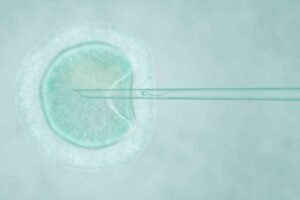
How to Support Egg Quality?
While we can’t turn back time or magically create more eggs, we can take steps to support egg quality. No, it’s not a silver bullet—but think of it as giving your eggs the best environment to thrive.
Nutrition and Lifestyle
A diet rich in antioxidants, healthy fats, lean protein, and low in processed sugar can help minimize oxidative stress, which affects egg health. Supplements like CoQ10, myo-inositol, and vitamin D have also shown some promise.
Ditch the Smoke, Watch the Booze
Smoking is a known egg killer—it reduces both quantity and quality. And while the occasional glass of wine probably won’t derail your fertility, heavy drinking can interfere with hormone balance and egg maturation.
Manage Stress
Chronic stress messes with hormone levels, ovulation, and egg development. Yoga, acupuncture, meditation—whatever works for you, do it. Not just for your eggs, but for your sanity.

Real Talk: Every Journey Is Unique
This whole conversation about egg quality vs. quantity isn’t about creating more fear—it’s about shifting perspective. Fertility isn’t a one-size-fits-all experience, and no two people respond the same way to the same numbers.
You are not your AMH. You are not your follicle count. You are not a statistic.
You are an individual with a unique fertility story. And understanding the nuances of egg quality versus quantity helps you make empowered, informed decisions—whether that means trying naturally, exploring IVF, freezing eggs, or just having more clarity about your future options.
The Bottom Line on Egg Quality vs. Quantity
Let’s wrap it up with the key takeaways from this whole heart-to-heart:
- AMH measures egg quantity, not quality.
- Egg quality is often the missing piece in fertility discussions—but it’s arguably the most important.
- You can have low AMH and still have healthy, viable eggs.
- Age impacts quality more than quantity in many cases.
- IVF success is more closely tied to egg quality than sheer egg numbers.
- Lifestyle tweaks can support egg health, but there’s no magic fix.
- Your fertility story is yours alone. Numbers are tools, not definitions.
Conclusion
If you’re feeling overwhelmed by numbers, hormones, and fertility lingo, you’re not alone. This stuff is confusing and emotionally loaded. But understanding the real meaning behind egg quality vs. quantity is a step toward clarity—and maybe even a bit of peace.


